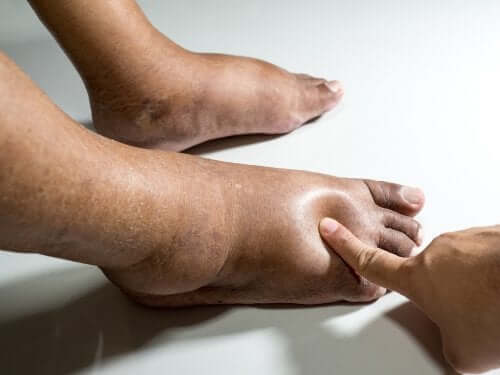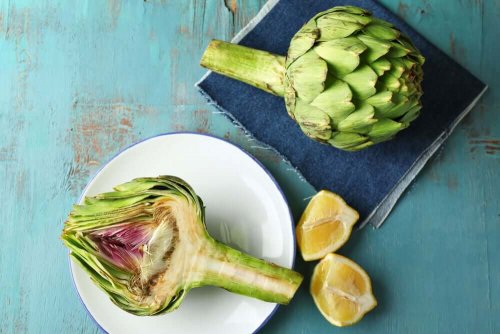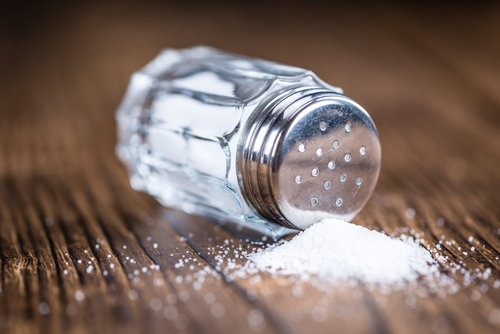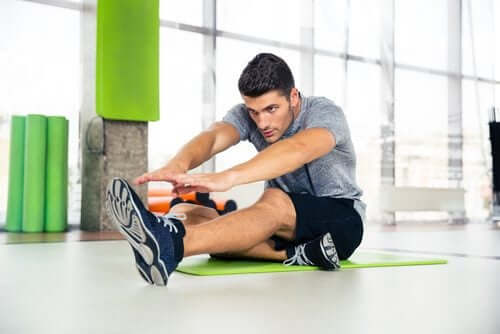Five Remedies Against Water Retention


Written and verified by the doctor Nelton Abdon Ramos Rojas
Cutting back on salt isn’t the only step you can take to fight water retention. Improving a whole series of habits in your life is the key to solving the problem.
Hormonal changes, some illnesses (like hypertension), and other factors can make your body retain water. It can cause other problems as well, such as inflammation in your arms and legs, tingling sensation, pain, etc.
Water retention isn’t an illness in and of itself, but a clinical sign of something else. So, if it goes untreated, it can affect your quality of life. Furthermore, that’s why it’s important to visit your doctor and follow their instructions. You should also consider the recommendations that we’ll share in this article.
What’s water retention?
As the name suggests, water retention – also known as edema – happens because of an alteration in the circulatory system. It is also related to hormonal problems, bad habits, and genetics. However, other possible causes are:
- Menopause
- Cardiac problems
- Pregnancy
- Liver or kidney failure
- High blood pressure (hypertension)

Check out these Eight Spices that You Can Use as a Salt Substitute
Symptoms of water retention
As we mentioned before, the main symptom of edema is swelling in the extremities (especially the legs). However, depending on the cause, symptoms can vary. The most common are:
- Swelling in the abdomen, face, and hips
- Stiffness in the joints
- Weight fluctuations
- Tingling and weakness
- A feeling of heaviness
- Muscle cramps at night
How to relieve water retention
In addition to following your doctor’s instructions, you should practice good habits to fight water retention. Here are some of the most important:
1. Consume plenty of diuretics

Food with high water content (like fruit) not only help hydrate your body but also encourage urination, which is important to prevent water retention.
Some of the best diuretic foods are pineapple, watermelon, cantaloupe, grapefruit, tomato, artichokes, and asparagus. Keep in mind, however, that these fruits and vegetables should be part of a balanced diet. Furthermore, your diet should never revolve around a small, restricted group of foods.
2. Eat a Healthy Diet
However, it’s not just about consuming diuretic foods. A balanced diet is crucial for good health.
The idea is to eat a diet that includes all of the food groups, in moderation and in appropriate quantities. Fruits, vegetables, whole grains, meats, dairy, etc. are all part of a balanced diet.
Nutritional experts advise that we divide our food intake into 6 portions evenly spaced throughout the day. By following this pattern, it’s easier to eat a balanced diet.
Check out Why Zumba Classes Are So Popular
3. Reduce your intake of sodium

Another stellar piece of advice regarding the eating habits that will help you reduce or get rid of excess water is to avoid sodium-rich foods in your diet. Added salt is the most common culprit. While it makes foods taste delicious, it’s bad for the health of your circulatory system and your lymphatic system.
Eating excessive salt can alter your body’s inflammatory processes and produce edemas. It can also increase blood pressure and cause problems for kidney function. So, here are some products you should avoid that tend to be high in salt:
- Soft drinks
- Ultra-processed food
- Processed drinks
- Canned foods
- Pickled foods
- Cold cuts and cured meats
- Processed bread and baked goods
4. Drink enough water
This may seem a little counter-intuitive to begin with. We’re trying to get rid of excess liquid that has built up in our bodies – but in fact, drinking water actually helps with that process. Drinking plenty of water stimulates the urinary system and the kidneys.
- You don’t necessarily have to drink 8 cups of water a day. However, just make sure you’re drinking enough based on your activities, diet, and lifestyle.
5. Work out

You probably already know that physical exercise contributes to the general well-being of the body. Not only does it help avoid muscle atrophy and combat our increasingly sedentary lifestyles but is also responsible for expelling all kinds of harmful elements through sweat.
- The best work-outs to focus on in this regard are ones based around aerobic physical exercise. This promotes intense sweating. As a result, this helps the liquids retained in the tissues to emerge gradually.
Why not consider getting involved in a sport? In addition, the vast majority of sports require some aerobic force. Some of the most effective are biking, swimming, and track.
Physical activity is key
To eliminate retained fluids and avoid suffering from frequent heaviness, swelling, and even pain, it’s advisable to improve the aspects mentioned above, and at the same time, adopt an active lifestyle.
Remember if you have any doubts, you can always consult your doctor. Furthermore, they’ll be able to guide you on how to improve your habits, depending on your body’s needs, your current state of health, and goals to be achieved.
All cited sources were thoroughly reviewed by our team to ensure their quality, reliability, currency, and validity. The bibliography of this article was considered reliable and of academic or scientific accuracy.
- Kleiner, S. M. (1999). Water: An essential but overlooked nutrient. Journal of the American Dietetic Association. https://doi.org/10.1016/S0002-8223(99)00048-6
- Yi, B., Titze, J., Rykova, M., Feuerecker, M., Vassilieva, G., Nichiporuk, I., … Choukèr, A. (2015). Effects of dietary salt levels on monocytic cells and immune responses in healthy human subjects: A longitudinal study. Translational Research. https://doi.org/10.1016/j.trsl.2014.11.007
- Mayo Clinic Staff. (2014, November 25). Water retention: Relieve this premenstrual symptom
mayoclinic.org/healthy-lifestyle/womens-health/in-depth/water-retention/art-20044983 - Mayo Clinic. Sodio: cómo controlar la costumbre de agregar sal. Noviembre 2021.
- Liver F. A, Vergutz Menetrier J, et al. Cellular and molecular mechanisms of diuretic plants: an overview. Current Pharmaceutical Design. 2017. 23 (8): 1247-1252.
- Wright C. I, Van-Buren L, et al. Herbal medicines as diuretics: a review of the scientific evidence. Journal of Ethnopharmacology. Octubre 2007. 114 (1): 1-31.
This text is provided for informational purposes only and does not replace consultation with a professional. If in doubt, consult your specialist.








